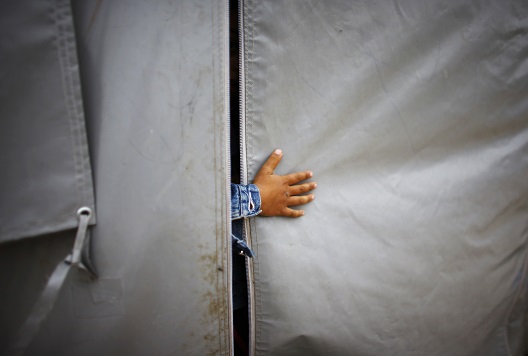 Although Turkey is part of the anti-Islamic State (also known as ISIS or ISIL) coalition, it has attached a condition to its full participation in and support of military operations against the forces of the self-proclaimed caliph. It has demanded that Washington accept the proposition that the removal of the Assad regime is the sine qua non for the destruction of ISIL in Syria, and that political-military operations against both ISIL and the regime require the establishment of a protected buffer zone in Syria along the Turkish border. Such a buffer would, in Ankara’s view, require a US-enforced no-fly zone. Washington seems intent on broadening the bilateral discussion on Syria beyond the no-fly zone, for which its appetite is well under control. Can these NATO allies get on the same page regarding the Syrian facet of the anti-ISIL campaign?
Although Turkey is part of the anti-Islamic State (also known as ISIS or ISIL) coalition, it has attached a condition to its full participation in and support of military operations against the forces of the self-proclaimed caliph. It has demanded that Washington accept the proposition that the removal of the Assad regime is the sine qua non for the destruction of ISIL in Syria, and that political-military operations against both ISIL and the regime require the establishment of a protected buffer zone in Syria along the Turkish border. Such a buffer would, in Ankara’s view, require a US-enforced no-fly zone. Washington seems intent on broadening the bilateral discussion on Syria beyond the no-fly zone, for which its appetite is well under control. Can these NATO allies get on the same page regarding the Syrian facet of the anti-ISIL campaign?
Washington and Ankara already have much in common with respect to the handling of the crisis in Syria: leaders in both places have permitted their words to far outstrip their actions. The criticism heaped on President Barack Obama for “step aside” and “red line” formulations unaccompanied by action (unless one includes a chemical weapons agreement that still allowed the Assad regime to commit massive war crimes and crimes against humanity) is well known. Yet, Turkish President Erdogan has not exactly been laconic or understated in this regard. One former US official recalls how senior Turkish officials told him in 2011 that Turkey would put forces into Syria and create a buffer zone if the Syrian refugee population in Turkey reach 20,000. That was 1.5 million refugees ago.
Ankara’s view of the importance of the survival of the Assad regime to the well-being of ISIL in Syria is correct. Its prescribed buffer zone is, in principle, the right medicine. But is Ankara bringing anything to the table beyond a sense of outrage, a proclivity to point fingers, and a willingness to hold the coat of the United States as US airmen and naval aviators do all of the heavy lifting? If President Obama proves willing to transcend rhetoric and do something that will save Syrian lives, give decent governance a chance, and add a sense of reality to his “train and equip” initiative, will he find in Turkey a partner or an onlooker?
To the extent that Ankara thinks a buffer zone can be made safe for Syrians by means of a no-fly zone alone, it is either misinformed or whistling past the graveyard. Yes, a way would have to be found to ground Assad’s air force, fixed wing and helicopters alike. There are many ways this can be accomplished: Syria’s vast anti-aircraft network need not be eliminated via a massive bombing campaign in advanced. Pentagon planners have several options at their disposal. Yet the protection of populated areas and the survival of nationalist military units is not simply a matter of stopping air attacks.
Regime artillery has been active and brutally effective against residential areas for well over two years. Regime ground units are trying to seal Aleppo so that the usual starvation siege can be imposed. ISIL elements also press the nationalists in and around Aleppo. A strong ground force component will be required to secure and, for as long as it takes to build a more capable Syrian opposition force, defend the buffer zone.
Is Turkey willing to provide this force? If it is then the basis of an agreement with Washington for the establishment of a viable buffer zone exists. If it is not, then all this talk of a buffer zone is simply … talk.
Are Washington and Ankara truly trying to agree on something of operational substance? Or are leaders on both sides struggling to sustain their respective rhetorical campaigns? Syrians suffering the effects of regime and ISIL assaults have perhaps given up on anything resembling rescue. Washington and Ankara have an opportunity to prove them wrong. It is far from certain that this opportunity will be thoroughly explored, much less seized.
Frederic C. Hof is a resident senior fellow with the Atlantic Council’s Rafik Hariri Center for the Middle East.
Image: A Kurdish refugee boy from the Syrian town of Kobani sticks his hand out of a tent in a refugee camp in the border town of Suruc, Sanliurfa province November 21, 2014. REUTERS/Osman Orsai
